i went to europe and now i want to learn chinese
three ways my brain chemistry was altered by euro summer
On June 28, I woke up on the morning of my flight not wanting to go to Europe.
Clearly, this was a sign I’d been stationary for too long—too caught up in the onslaught of daily happenings and worries. Because the only person who feels guilty about going on vacation with their best friends from college is someone who’s overly anxious about the future and foolishly overconfident in their ability to tame fate.
Eight days, three countries, and a blur of memories later, I’m now back at my desk in Brooklyn, typing up this letter.
The trip held a multitude of meaningful moments and desires for change within me. Here are three of them, along with a series of photos I took on both my iPhone and DigiCam.
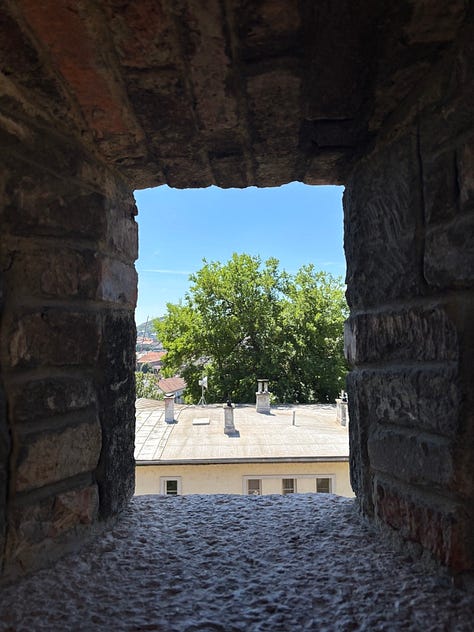

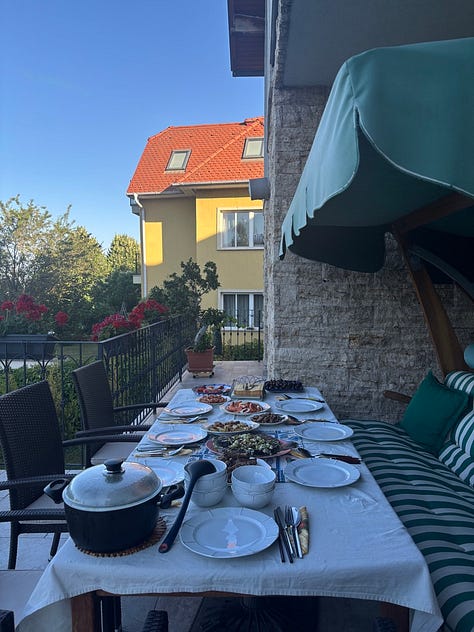

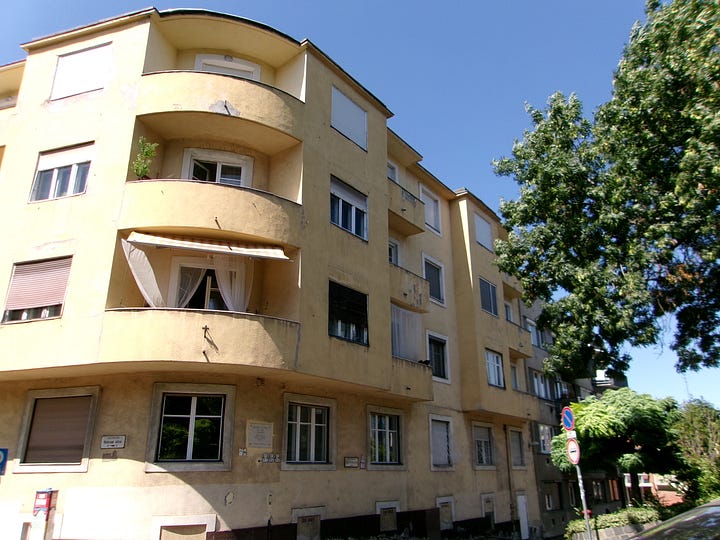
I plan to pick up learning Chinese.
Language learning has always been one of those “I’ll get to it one day” hobbies—but we all know those rarely see the light of day.
On the trip, I experienced the culture shock of
seamlessly shifting between English, Hungarian, German, and Chinese, all in the same day. She was one of my roommates in college, so I knew she could speak many languages, but it was the first time I’d heard them all flow together like that.As we bounced around different countries, our group of five struck up several conversations on the purpose of language—language as camaraderie, as culture, as transaction, as duty, and sometimes, as just plain fun.
I’m Korean-American and can speak Korean decently. “Fluent” would be too generous, but I can hold everyday conversations and understand most things. By definition, that makes me bilingual.
I was, however, almost trilingual.
When I was four, I pulled a Chinese-to-Korean dictionary off my mom’s bookshelf and began copying characters into a notebook. I liked the way they looked. My mom caught me in the act, took it as a sign from the universe, and promptly signed me up for Chinese summer school, where I was matched into classes with far younger and already fluent Chinese kids.
Chinese school only lasted a few summers before giving way to more “relevant” extracurriculars, but I learned it at such a young age that I lot of it stuck with me. The last time I touched Chinese was in high school, to fulfill my foreign language requirement. A combination of public school teachers who didn’t care and my early immersion to the language made those classes a cakewalk.
The stars are aligning, I think, to pick up Chinese again. I have friends I can practice with, there’s an abundance of resources online, and ChatGPT has made me a very useful study plan. It won’t be easy, but I can see myself becoming relatively fluent if I try.
And I’ll admit—I have ulterior motives.
When I was a kid, my dad would remind me that learning Chinese would be useful if I ever wanted to go into business. I was naive and mostly confused—English had always been more than enough. And it still is, if you’re working within American corporations. My recent travels to Asia and Europe only confirmed that English remains the business language of the world.
But as I move forward with the sampling process for Flores de Oro—my clothing brand—and dig deeper into consumer goods, tariffs, and exports in light of recent policy shifts, I’m starting to understand the full weight of Chinese manufacturing. Business really does flow through China.
Having received higher education in the U.S., I’ve been conditioned to associate language with intelligence. Smart people are good writers and sharp with their words. At its most cynical, language becomes a tool—sometimes even a weapon—for persuasion and influence.
In the U.S., it’s easy to forget that, at its core, language is simply a way to understand each other. Beyond asking if I want raspberry or strawberry lemonade, or whether I’m paying with cash or card—it’s about humility. For an English speaker, choosing to converse in someone else’s native tongue is a small act of respect. A way of saying, I’ve made the effort to meet you where you are.
And honestly, beyond all that,it just seems fun. A stimulating way to flex a different part of my brain, while building a skill that could actually come in handy down the line.
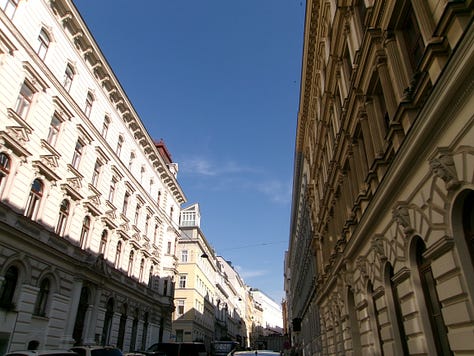
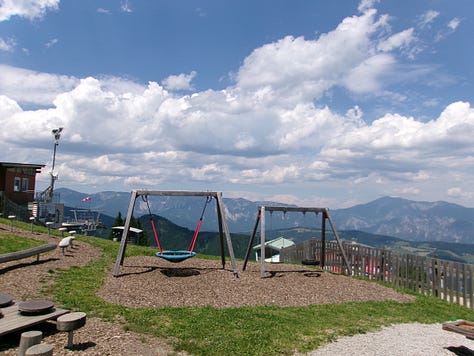



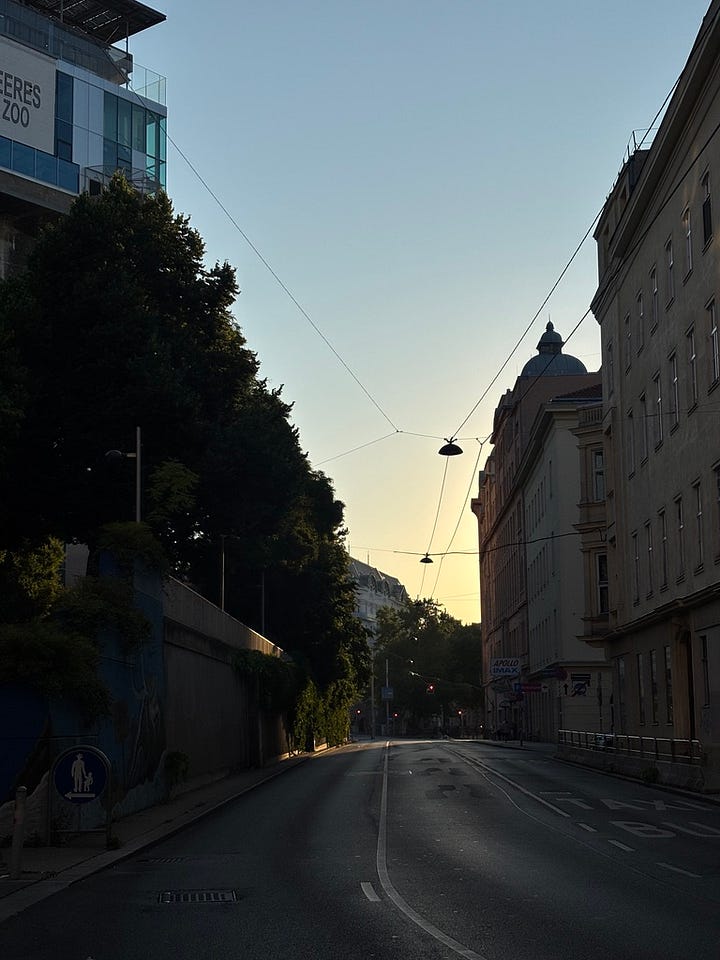
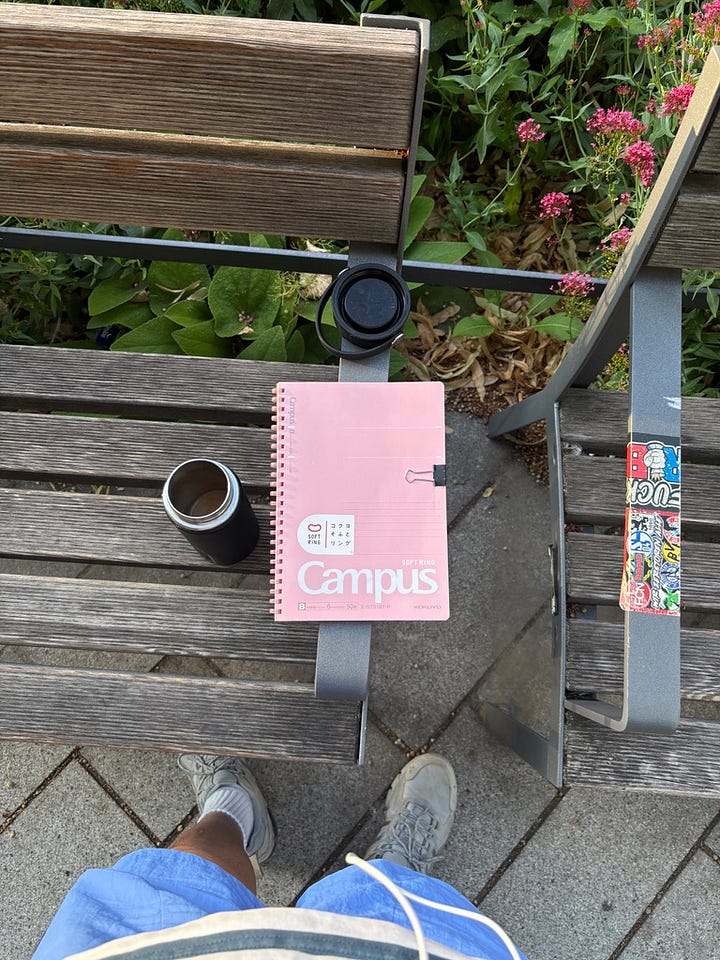
I plan to engage more with classical music
Classical music has always served as a core part of my identity. Both my mom and sister are professional opera singers. Sopranos.
I’ve never loved music. Not just classical music, but all types. I think it’s all just okay. Most of the time when you see me walking around outside with earbuds on, I’m actually not listening to anything. I’m just avoiding conversation from strangers.
While watching a performance in Vienna, I made an interesting connection about myself. As someone who doesn’t love music, I’m in a strange position—one that perhaps only professional musicians can relate to—where I’ve spent far more hours listening to live classical music than to anything pre-recorded. And through this in-person exposure, without even realizing it, I have developed familiarity with the sounds associated with performance. The muffled coughing that echoes the chamber, the vigorous flipping of pages, and most importantly, the momentary silence between the last note and applause.
I crave these sounds almost as much as the music itself.
Without use of microphones or speakers, classical sound is not purely dominated by forward motion, but is omnidirectional. A small game I play during performances is to follow sound waves around the room: the way a violin bounces off the back wall or travels upward toward the ceiling. Another game—one I’ve mastered—is picking out my mom or sister’s voice when they’re singing in a choir. If there are only four or five sopranos, I can do it.
Living away from home for the past 6 years, I’ve grown increasingly distant from classical music. But while traveling through Europe, surrounded by the beautiful cathedrals, street violinists, and an endless stream of people trying to sell concert tickets, I felt strangely defensive about classical music. Like it’s something I should protect.
Classical music put food on my table growing up. For most of my life, I simply treated it like a fun fact—something to mention when people asked what my mom does for a living.
I want to pick up playing piano again. I want to go to more concerts in New York. I’ll be the first to admit I sometimes doze off or drift into daydreams at these performances.
But I always leave quietly changed, like the music has oxygenated something in my bloodstream.




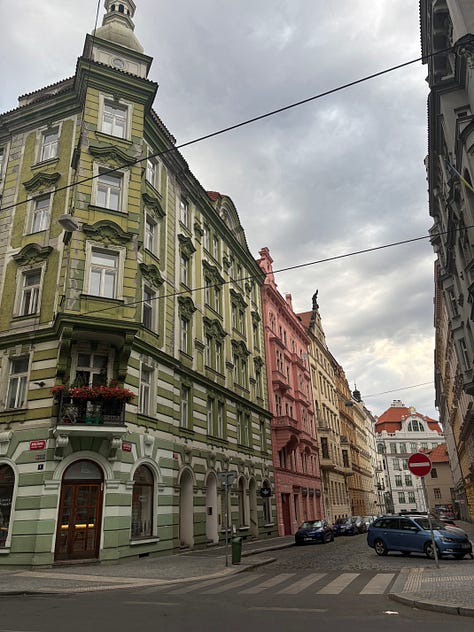
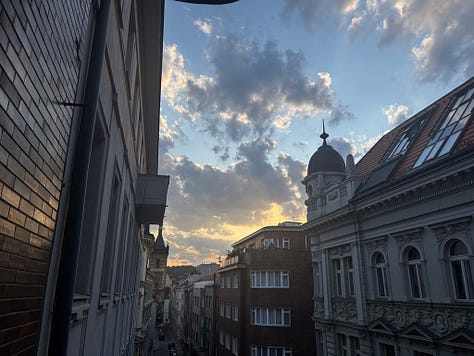
It’d be nice to live abroad for a month
Before this trip, I never really understood the difference between being a traveler and a tourist.
I used to think being “touristy” just meant visiting landmarks and eating at comfortable restaurants. And while I still think it’s irrational to avoid being a tourist entirely, I’ve come to see the distinction a bit more clearly.
I’ve never wanted to live abroad. And honestly, I still don’t. Given what I value—where my family is, my skill set, my interests—the U.S. is the right place for me. But one thing this trip made clear was just how touristy it was. Aside from Budapest, where I stayed at a friend’s place and had access to a car and local spots, Vienna and Prague were speedruns. I moved from sight to sight, sought out crowds, and felt both comforted and repelled by them.
In that sense, I started to wonder: what would it be like to stay in a new country for a few weeks at a time? Not to live abroad permanently, but to live in a place—briefly, intentionally.
Is that something I can commit to trying?




imagine how powerful we would be if we actually learned chinese in chinese class..
lovely reflection
Yes, yes, and yes! In full support of the full send 🔥